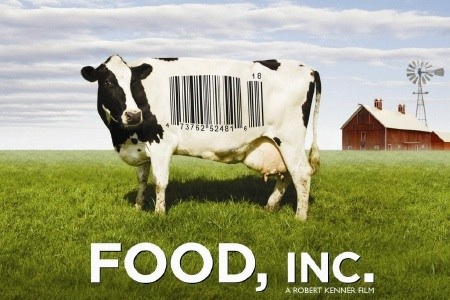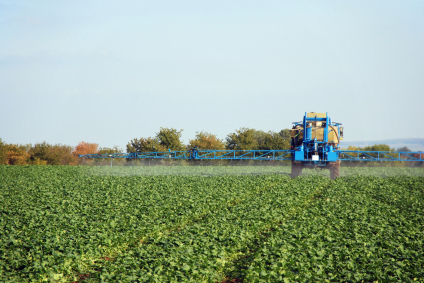industrial ag
-
Burrito chain’s Food, Inc. sponsorship generates off-screen drama over farm-worker issues
On July 13, Chipotle Mexican Grill announced it was throwing its marketing weight behind Food, Inc., a documentary that takes a highly critical look at the food system. The fast-food chain would be sponsoring free screenings of the film at 32 theaters nationwide. It would also be distributing material promoting the film at all its […]
-
A climate policy for agriculture that works
A proven climate solution. Not since Earl Butz’s famous “hedgerow to hedgerow” comment of the 1970s have America’s farmers been at such a turning point. Food and farming policy in the United States is largely determined by the Farm Bill, behemoth legislation that comes around once every five years. Yet, the current climate legislation–The American […]
-
NPR: Organic ag rises in India
Wouldn’t a bit of atrazine liven up this scene?India is a major player on the global stage–hub of the information-technology market, the world’s second most populous nation, and a nuclear power to boot. It would be a global-scale calamity if India’s food security became compromised–and that is exactly what’s happening, as NPR’s Daniel Zwerdling showed […]
-
Against the grain of industrial agriculture, truly local bread stages a comeback
David Bauer of Farm and Sparrow BakeryPhoto: April McGregerOn a recent vacation to Asheville, North Carolina, I headed to the market to get a loaf of bread. Asheville is home to a large a number of small-scale bakeries, many of which sell primarily at tailgate markets and wholesale to nearby specialty food shops. I found […]
-
NPR: Industrial ag and India’s ‘cancer train’
Spraying pesticides: how green a revolution? Last month, NPR’s excellent Dan Zwerdling filed two reports (here and here) on the ecological and economic upshots of industrial agriculture in India. Starting in the 1960s, U.S. agronomists–backed by U.S. foundation cash and blessed by the Indian government–introduced farmers in India’s then-fertile Punjab region to the glories of […]
-
NPR: Industrial ag in India on the verge of collapse
Field of screamsIn a glowing Atlantic profile back in 1997, Greg Easterbrook declared Norman Borlaug the “Forgotten Benefactor of Humanity.” Borlaug is the intellectual father of what became known as the “Green Revolution,” the concerted effort by the U.S. government, leading foundations, and large agribusinesses in the 1960s and ’70s to deliver the gift of […]
-
New legislation would make the meat industry ‘just say no’ to antibiotic abuse
As debate around food safety regulation heats up — some might say, overheats — sublimely named Louise Slaughter (D-N.Y.) has introduced a House bill that would significantly affect farming practices in the United States. Called the Preservation of Antibiotics for Human Treatment Act, the bill would effectively prevent CAFOs (confined animal feedlot operations) from dousing […]
-
In industrial-tomato country, workers suffer squalid living conditions and even slavery
Note: Last week, I visited Immokalee, Fla., with nine other food-politics writers and activists. We were there to check out conditions in the area where 90 percent of winter tomatoes consumed in the U.S. originate. Part I of my diary is here. ——— Update [2009-3-13 15:3:13 by Tom Philpott]: After refusing for two years, Florida […]
-
Popular fumigant found to be a potent greenhouse gas
Update [2009-3-14 16:17:10 by Tom Philpott]:The original version of this post, titled "Strawberry Surprise," contained errors that I regret. I had mistakenly read the below-linked account of an MIT study to mean that sulfuryl fluoride was registered for use by the EPA as a pre-planting fumigant for strawberries. Actually, the chemical is registered only for post-harvest use on food, as well as a structural fumigant for termites. I also reversed the phrases "methyl bromide" and "methyl iodide" on two occasions. Again, I regret these errors.
-----------------
Chemical fumigants are a staple of the industrial-food system. They're used to sterilize soil before planting large monocrops, and also to control pests in stored food like grain and dried fruit. The building industry, too, uses them, mainly to fight termites. In the past, fumigants have caused much environmental damage, and tend to be quite toxic for humans, too. Now comes news that the building industry's new favorite fumigant -- sulfuryl fluoride -- is a greenhouse gas 4,800 times more potent than carbon dioxide, according to a recent MIT study.





